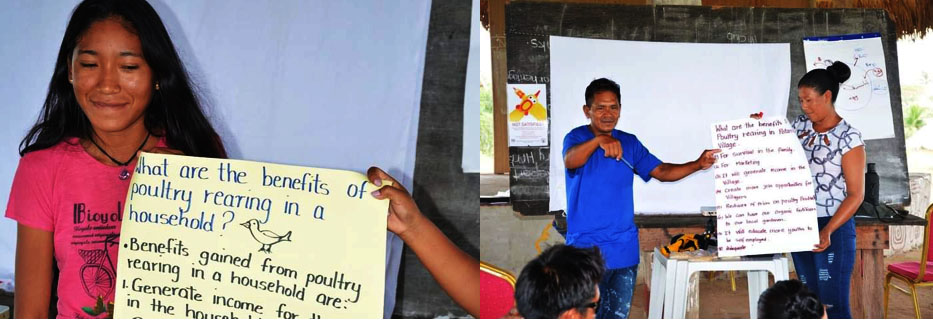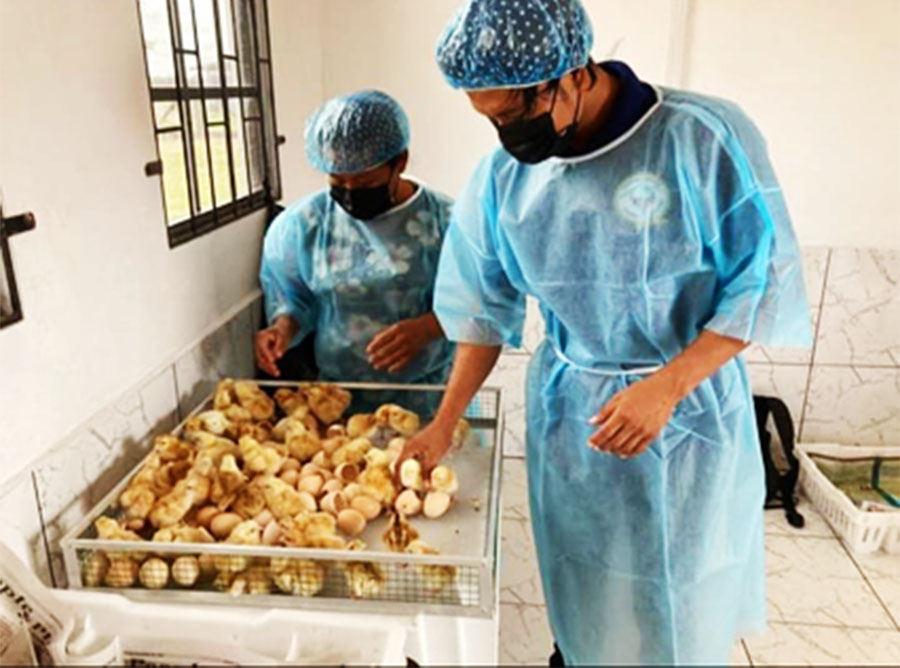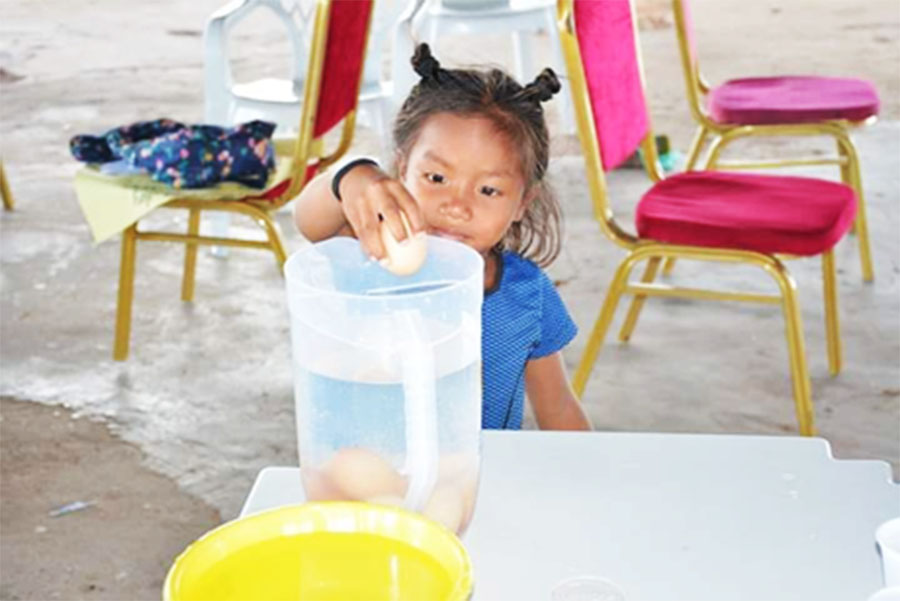By Abigail Headley
The Rupununi Livestock Producers Association (RLPA), under the Sustainable Management Project (SMP) is currently running an initiative called the ‘Egg Sandwich Project’ in Region 9. The project is funded, at a value of over $120 million (US$608,000), by the Greater Guyana Initiative (GGI), a partnership between the Stabroek Block co-venturers ExxonMobil, Hess and CNOOC and the people of Guyana.
Project Coordinator Ayla Kenyon told Stabroek News that the iniitative is aimed at enabling consumer access to affordable local, high-quality chicken and eggs in the hinterland communities of regions One, Seven, Eight, and Nine.
The project, Kenyon said, will help to strengthen the capacity of hinterland poultry producers, and the producers’ organisation that supports them.
“Furthermore, safeguards will be introduced to ensure that health, safety, social and environmental sustainability underpin the transformation of the poultry production in the hinterland,” she added, while adding that chicken was the livestock of choice since it has a faster turnover for income and as a source of protein.
The funding received has paved the way for the construction of a hatchery in Lethem, “which is the first and only owned hatchery by an association in Region Nine… where we are now hatching [Rhode Island and Broiler] eggs,” Kenyon said. The hatchery, which was commissioned on 18th November 2022, has hatched 5,742 chicks, and for the month of June, plans are underway for the hatching of 3,000 broiler eggs weekly to supply producers in Region Nine. Since its existence, it has supplied products to 189 poultry farmers (85 men, 98 women) and six groups including of women and youth.
Kenyon acknowledged that the Rupununi is known for the importation of chicken and eggs from Brazil, a phenomenon that is currently ongoing. She said the project is aimed at decreasing that.
“We are hoping, sometime in the future, that the
Rupununi can provide for themselves and the wider country [and] with the government’s aim to stop imports by 25% by 2025, this will give us a head start,” she stated.
The ‘Egg Sandwich Project’ comprises the selling of baby chicks, on a weekly basis, at reduced prices in the Rupununi, compared to Georgetown. The aim of this, Kenyon explained, is to supply the Rupununi with chicks so that households can start rearing poultry, or improve and increase their stocks.
So far, the initiative has seen the employment of 14 individuals in the region, 10 of which are peer-to-peer poultry trainers. The trainers are responsible for training and assisting people, in their district, who are interested in starting poultry production or who want to learn about poultry production. To date, 1,124 individuals have been trained. Two hatchery operators, a hatchery manager, and a project coordinator have also been employed.
Kenyon added that investment was being made to enhance two existing slaughter facilities at Massara and Shulinab villages. This investment targets improved structures, provision of equipment and training. Both villages, she said, are well suited to demonstrate best practices to nearby producers, and encourage communities and producers to invest their own funds to improve the standard of slaughtering.
Though the Project Coordinator mentioned four regions,v to date only Region Nine has been the area of focus.
“For this year we are focused on Region Nine and are currently doing scoping visits to the other regions to understand their poultry industry and to figure out where they need help,” she explained.
It is estimated that the Egg Sandwich Project will eventually benefit 70-80% of households in the hinterland regions. It is the first regional socioeconomic project to be funded by the $20 billion GGI.









